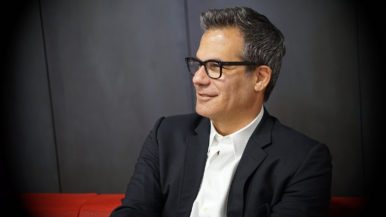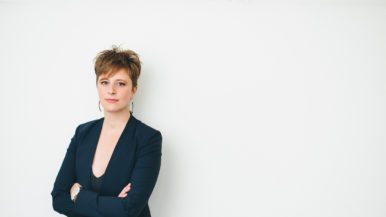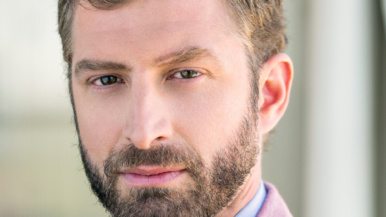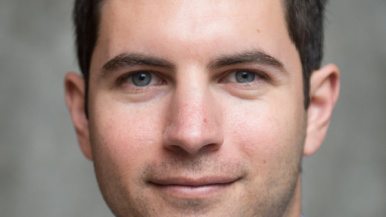Q&A: Mohamad Fakih, the restaurant CEO who paid for funerals for the Quebec mosque shooting victims

When a gunman attacked a mosque in Quebec late last month, Mohamad Fakih, CEO of Paramount Foods, was among the first to spring into action, offering to pay for the victims’ funeral costs and donate money toward refurbishing the mosque. Fakih, whose middle-eastern-food empire makes him one of the city’s most influential restaurateurs, has also made it his mission to hire 100 refugees to work at his businesses. We spoke with him about coming to Canada as an immigrant, and why he feels pride—not fear—following the tragedy in Quebec.
Where were you when you first heard about the Quebec mosque attacks, and what was your initial reaction?
I was in my car driving home when I first heard it on the news. There wasn’t a lot of information about what was going on. I’m always nervous that things that happen in Europe will happen here. It’s in the back of my mind always. When I got home my wife and children were watching the news on TV. At first I was worried, and then I was very sad when we found out what happened.
Your kids are young. How did you talk to them about what happened?
My son asked me, “Why did this happen? Will this happen again?” It’s very difficult to explain these things. I don’t want my child to be worried, or to wonder if something like this could happen to him because his dad was born somewhere else.
It didn’t take very long for you to spring into action.
At first I was shocked. And being shocked is fine—but not for long, because then you need to ask what the problem is, and how you can help. I started making calls. The next morning I got a reply from Islamic Relief, the international aid organization. They were still organizing, but I said, “Look, the first thing that is probably needed is money for the funeral.” I didn’t know what the amount would be, but it didn’t matter. And then people started reaching out to me to donate money. We’re still collecting, but so far I have contributed over $45,000 and we have directed many other people to Islamic Relief to make donations.
You came to Canada as an immigrant from Lebanon almost 20 years ago. Now you run a massive restaurant empire. Do you consider yourself the poster boy for the Canadian Dream?
Absolutely. Who I am is what I’ve learned from being Muslim and what I’ve learned from being Canadian. The opportunities I have been given in Canada—that’s what pushes me to give back. We build Canada by giving back.
What do you remember about those early days in Canada?
When I first got here I lived in a basement. To pay rent, I taught the landlord’s son French. I remember asking my friends how to write a resume that would be attractive to an employer in Canada. In Lebanon I was a gemologist by trade, but finding a job wasn’t easy, because employers wanted Canadian experience. I did an internship during the day and I worked at Coffee Time at night.
And how did you go from that to running a successful restaurant chain?
It was by mistake. I walked into Paramount to buy a tray of baklava and the guy who was running the store asked me if I would lend him money. I didn’t know him. I just wanted the baklava. But I gave him my business card. He called on Monday morning and I ended up getting into business with him. At that point, it wasn’t a restaurant—it was mostly desserts and coffee. Now we have 43 restaurants and 23 are being built. We’re in England, Pakistan, Beirut and Orlando.
Last year you announced a plan to hire 100 Syrian refugees. How’s that going?
It’s going very well. We have hired over 80 refugees, and we are only nine months in. A job is so important. You can never give anyone enough money to restore their pride, but, if you can give them a job, the whole family structure starts to come back. Already there are a lot of success stories. We have someone who started in the bakery and he’s now an assistant manager with a good salary, and his family is coming over.
What has been the biggest challenge in hiring refugees?
Integration has been a challenge. There is a lot of psychological healing time. Paramount and a lot of companies who have decided to help these people, we knew we were going to go through this. That’s part of giving back. It’s not just about giving the job; it’s about getting them through their integration period.
We hear a lot about a rise in Islamophobia, both nationally and internationally. Is that something you’ve personally experienced?
I’ve had my son asking me what it meant when a lady told his bus driver to “go home,” because she was wearing a hijab. That shook me. But there has been so much positivity, even after the horrible, horrible attacks in Quebec. I got a text from my son telling me that one of the children at his school wrote him a letter thanking him for what we did at the mosque. He was so proud. Again, it shows how we can cover the negativity with so much positivity.
So you don’t feel any less safe following the Quebec attack?
I don’t. What happened was a major tragedy, but we were tested and I think we passed the test. We helped the eighteen children who lost their fathers, and we helped Canada to continue as the beautiful mosaic that it is. Maybe I’m too positive, but that’s how I think about it.





